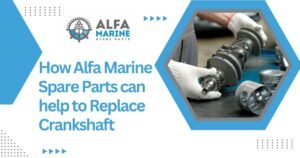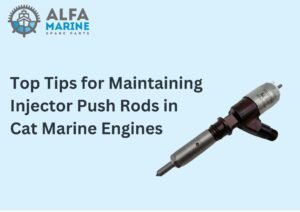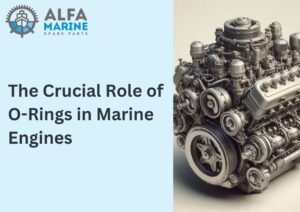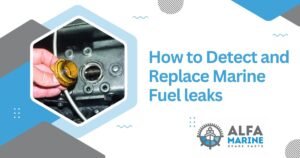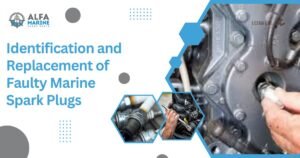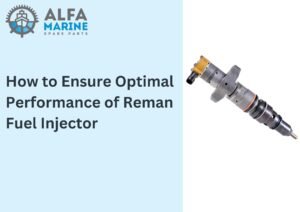Scavenge fire is one of the most destructive fires in marine diesel engines. As the term reveals, scavenge spaces in the engine room are the location for such fire ignitions. The sudden explosion in the scavenge area in your engine can be fatal. Such fire takes little time to spread in various parts of the engine room and gradually in the entire vessel.
Fortunately, it is possible to evade such hazardous incidents on a ship. It is all about knowing the causes of fire breakouts in faulty and outdated engines.
Moreover, preventive measures and safety maintenance can eliminate the chances of such mishaps in your vessel. Here is an overview of scavenge fire in marine engines, the prime causes, and more. These best practices can help protect the expensive equipment in the engine room from damage.
Hence, without much ado, let us dive into the nitty-gritty of scavenge fire issues in ship engines.
Understanding the Basics of Scavenge Fire in a Marine Diesel Engine
The scavenge space in the diesel engines is constantly filled with residues released from the combustion chamber. This includes carbon soot, carbonised lubricating oils, unused fuel, and other bi-products, resulting from successive combustion cycles.
The cumulation of heaps of such combustible agents in the scavenging area is often left unattended. These components can catch fire if there are sufficient oxygen, heat, and ignition sources.
Reasons for Scavenge Fire in Marine Diesel Engines
There can be multiple factors contributing to fire in the scavenge space. Here are the prime causes of massive fires and explosions in this part of diesel engines.
Poor and Worn-Out Engine Parts
In most cases, poor condition of the engine triggers fire incidents in the engine room. This is especially possible if the liners are wearing heavily due to nearing the end of the lifecycle or corrosion due to exposure to chemicals/ salt water. The worn-out liners of the combustion chamber offer fire access to the deposits in the scavenge area.
Excessive Dirt and Combustible Substances in The Scavenge Space
Lack of maintenance and cleaning contributes to heaps of carbonised lube oil, fuel oil, and soot deposits in the scavenge area. The presence of too many combustible components acts as fuel for greater intensity of the fire.
Faulty and Damaged Spare Parts
The fuel can drain into the scavenge space if the fuel valves are leaking or the nozzle holes are too big. The problems can become severe due to errors in the fuel pump or injection timing.
Fault in the Piston Rings
The piston rings and ring grooves must be properly fitted to prevent leaking of the lube oils. If the rings are worn out or have become loose, the repairs must be addressed immediately. There can be overheating in the cylinder if the spring of the piston rod packing is weakened.
Replacing the faulty parts with cheap or aftermarket spares can be hazardous. Consider OEM spare parts when the piston rings need replacement.
Improper Cylinder Lubrication
The lube oil can drain into the scavenge space during piston movement. This happens if there is excessive lubricating oil in the cylinder.
Conversely, the piston can rub against the cylinder walls and cause friction if there is insufficient lube oil in the chamber.
Besides wearing the cylinder liners, misalignment of the piston (binding), can cause overheating and sparks.
Safety Measures to Prevent Scavenge Fire Breakouts
Inspection of the Cylinder Parts and Scavenge Space
Monitoring the engine parts is one of the best ways to detect an underlying problem. This helps in evading problems and enhances fuel efficiency and engine performance. Here is a checklist to ensure monitoring the engine parts during inspection:
- Alignment of the piston
- Movement of the piston along the cylinder liner (when the engine is running)
- Condition of the springs on the piston rod packing and relief device on the scavenge space
- Liner and piston rings
- Frame and diaphragm
- Guides, guide shoes, and tension in the tie bolts
Regular Cleaning and Maintenance
Drain out the excessive fluid in the scavenge space and clean thoroughly at frequent intervals. Maintain the accurate level of lubrication in the cylinder. Check the PMS to monitor timed lubrication. Clean and lubricate the piston rings at regular intervals.
In Conclusion,
Diesel engines are extremely powerful to regulate propulsion in heavy-duty vessels. Alfa Marine Spare Parts offers an extensive selection of marine diesel engines from leading brands – Caterpillar, Cummins, Wartsila, Scania, Perkins, Volvo Penta, Mitsubishi, and others. Visit our web catalogue to explore our entire range of marine engines, spare parts, and electrical systems.


